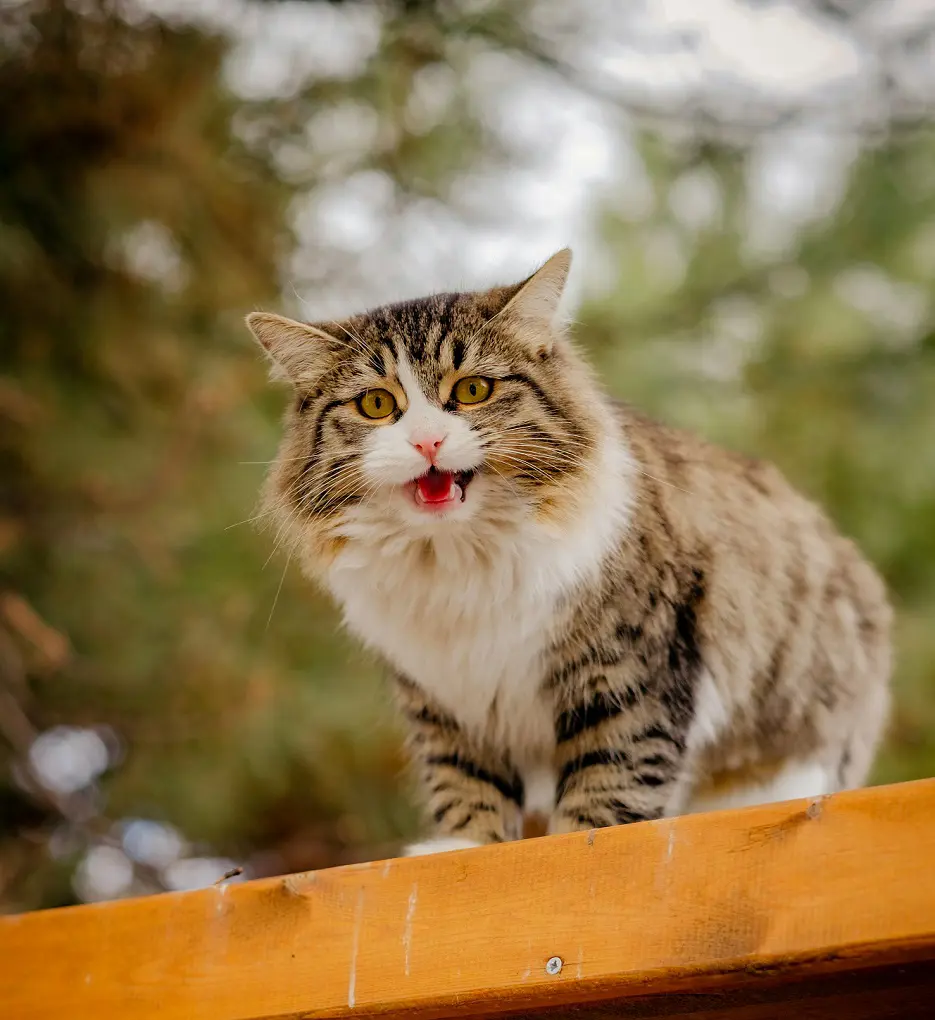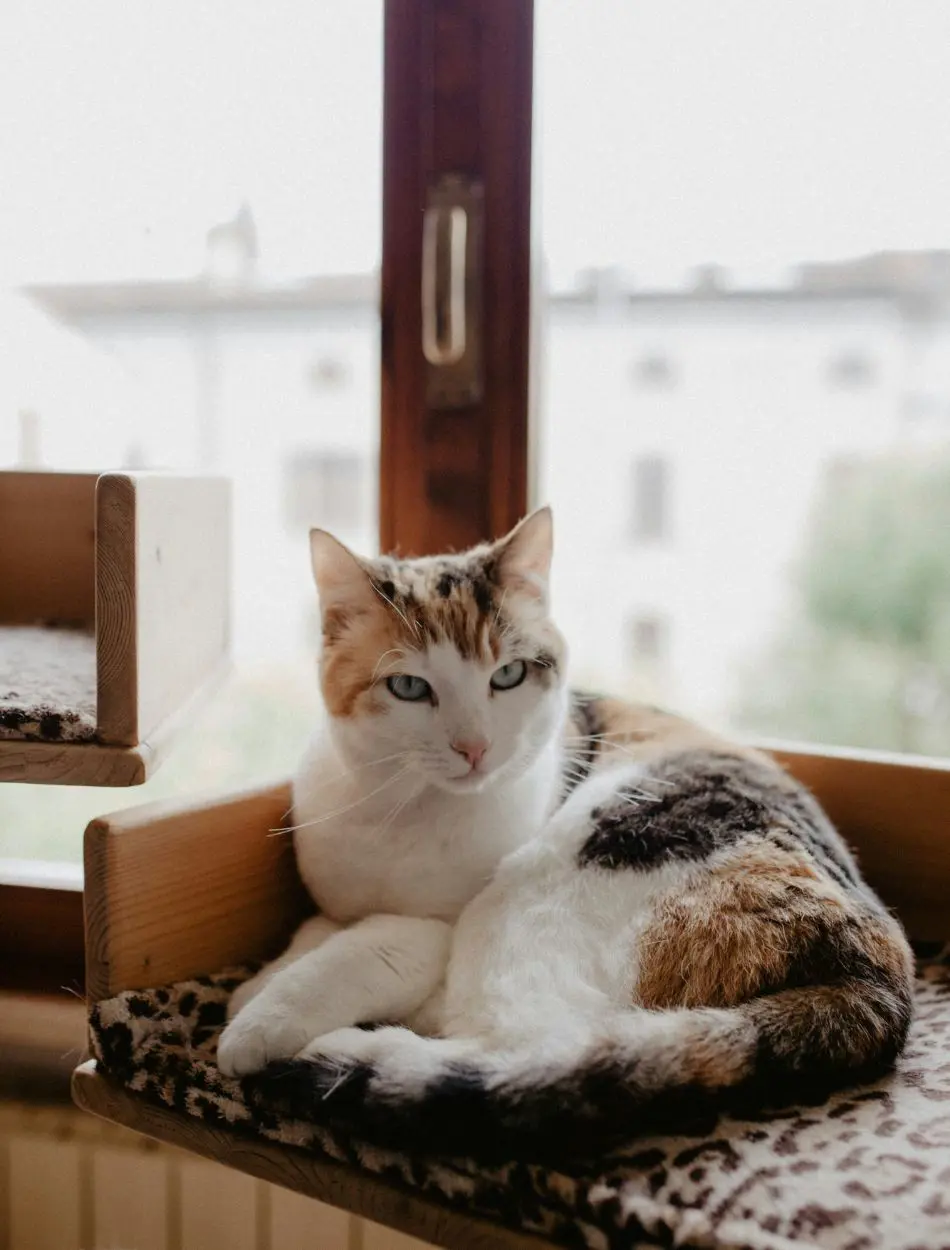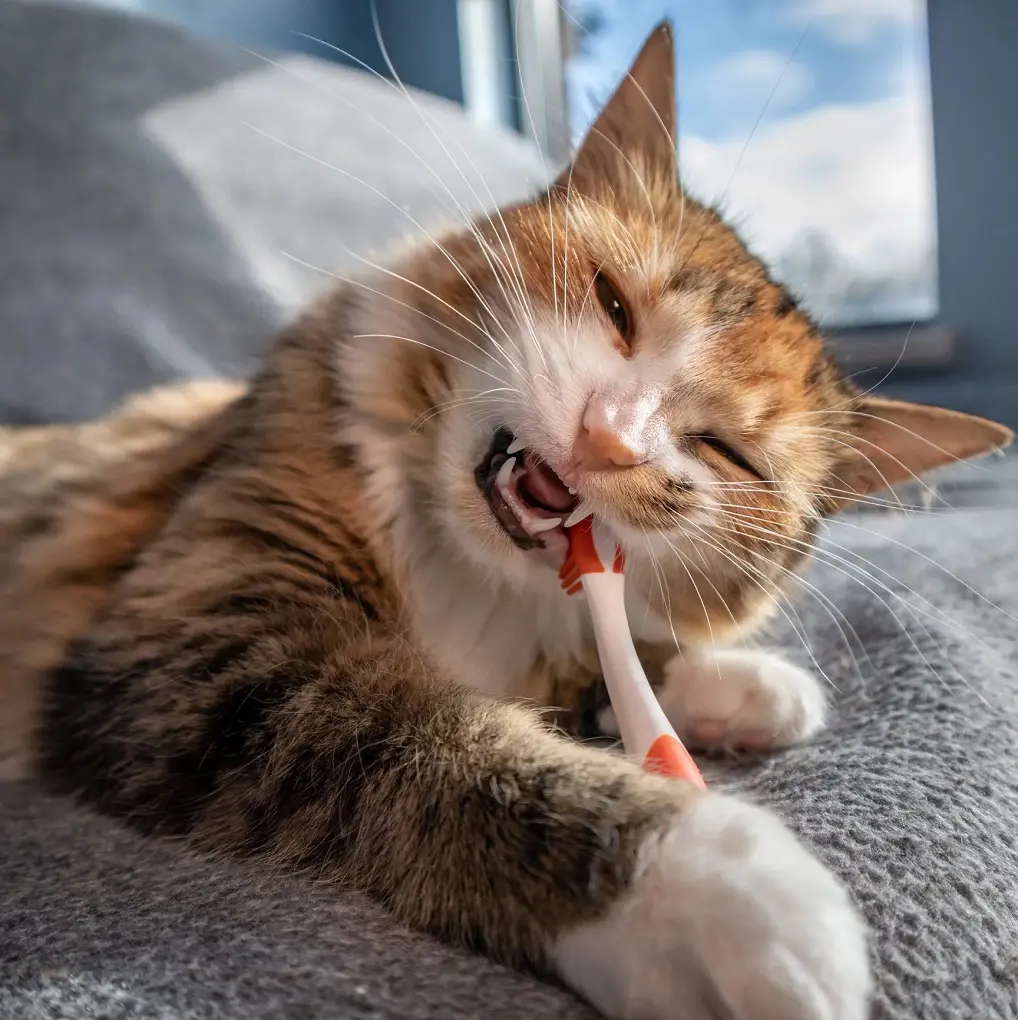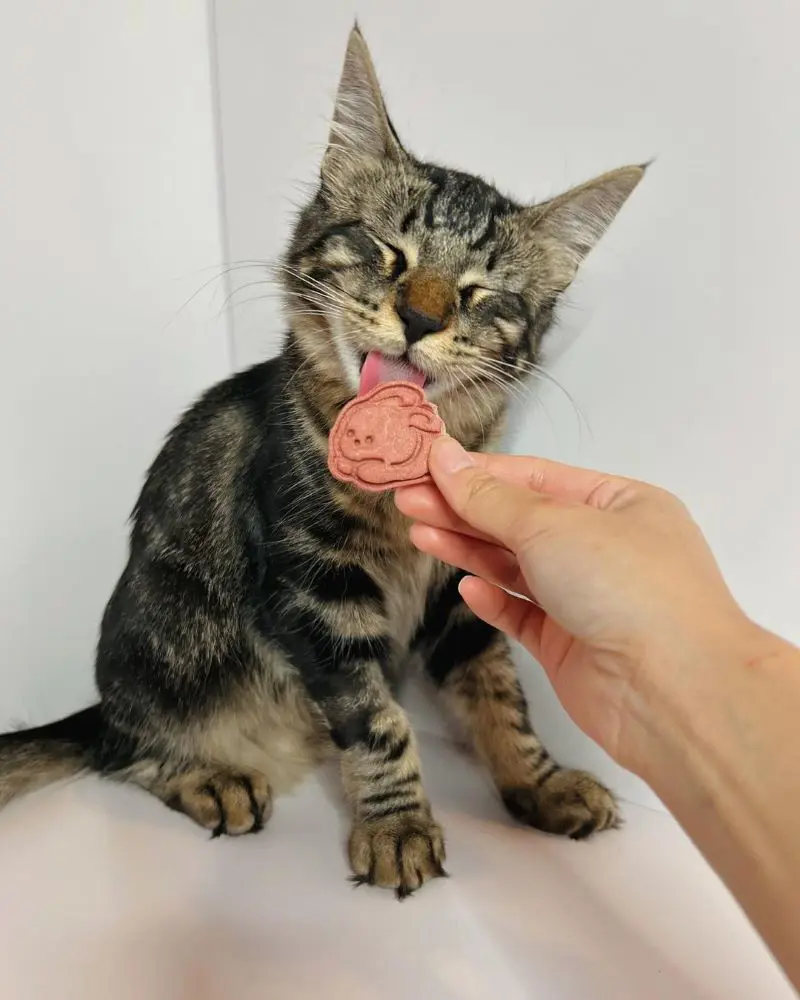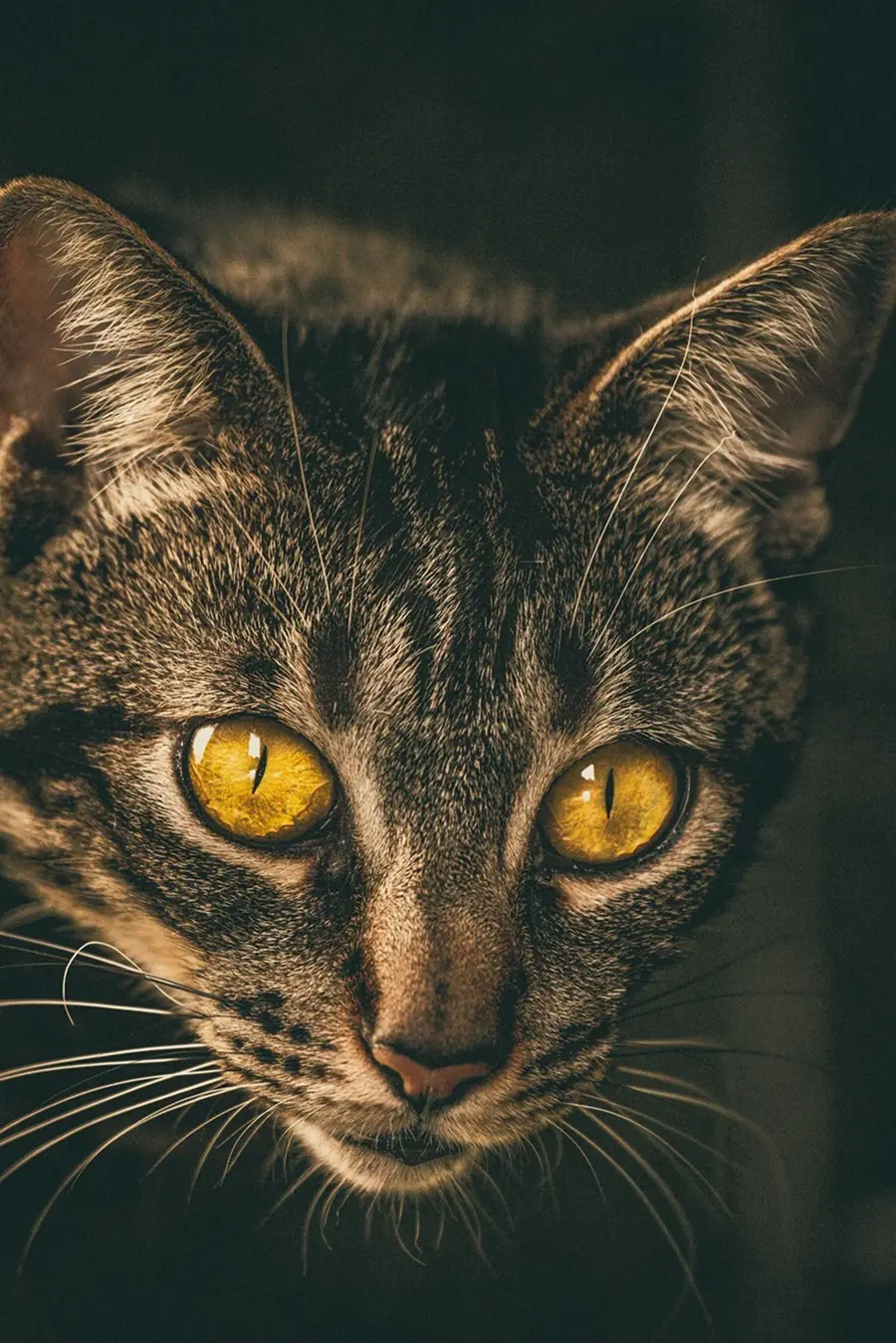Why Is My Cat Eating Litter & How to Stop It

Cats sometimes exhibit awkward behaviors and eating litter could be the most surprising action, it means a weird and thought-provoking situation to the owner.
A cat does this for various reasons contending to explain this furry little creature's behavior and being able to understand the underlying causes would be very useful in dealing with this problem while at the same time taking care of your cat enormously.
This would be helpful to try to find the main cause of litter eating, as relevant measures can then be adapted, you need to observe the general behavior, diet, and environment of your cat in terms of this behavior or stressors that could have caused this.
Curiosity Exploration
Curiosity seems to be the character of a cat and they tend to view things with interest in their surroundings, sometimes compelling them to have a look at the litter box. If a cat finds something new, it may use its mouth to explore the object and that includes litter too.
This is quite common in young kittens who learn about their environment so you need to provide them with a highly stimulating environment, having lots of toys and safe objects to investigate which satisfies their curiosity and they will be less prone to eat the litter.
Keep your cat busy by rotating the toys often and changing over to new playthings and this will further minimize the opportunity for them to turn their interest to a litter box out of curiosity by offering other interesting things, a well-enriched environment with feline-safe features supports your cat's instincts to investigate and explore.
Nutrient Deficiency

If the cat misses some of the important ingredients or elements in its food, it might be forced to look for those elements somewhere else like in litter and such kinds of behaviors can be avoided by providing them with sufficient nutrition and a balanced diet.
If a cat's primary food has low nutritional value then it will result in eating non-food materials like litter and feeding your cat with proper commercial food that suits its needs may also correct some of the nutritional deficiencies and the likelihood of litter-eating will drop drastically.
Keeping a constant check on what your cat eats and providing it with all the correct nutrients will prevent unnecessary hunger, which might forcefully make one feed on litter.
Taste Attraction
What happens is that most of the time, some odor of a particular non-clumping litter appeals to the cat, and sometimes some litters include additives or ingredients in them which make it so appealing that the cat will try to eat it.
This can be especially a problem if the litter wasn't made to be ingested so you should switch to a different type of litter that won't be as appetizing to your cat's taste buds. All unscented and non-clumping litters are much less palatable and may help get your cat to stop eating the litter and make sure to watch for your cat's reaction to new litter for safety.
Go for litter that doesn't have any palatable flavors or smells, and it will help your cat not acquire a taste for it and keep the litter box tidy and free of possible attractants that might be lying around, and a simple change in the kind of litter may help make a world of difference.
Dental Issues

Many dental problems like gum diseases and decay of teeth, infections inside the mouth act as massive pain contributors and this pain can be relieved in cats by chewing on various things like litter. This makes the cat's dental health very relevant to the prevention of litter chewing in such cases, as the cats could experience relief from dental pains or discomfort by chewing on litter.
Scaling will diagnose and treat dental conditions in your cat besides regular veterinary dental exams and you can also give them an interactive toy made for cleaning cats' teeth or reward them with dental treats, this will put you at ease about the health of their teeth and gums.
Proper dental care will help you avoid oral pain in your cat, which results in litter chewing and it has another function of the highest importance, diagnostics and treatment of dental disorders significantly improve the quality of life and reduce the motivation to perform unwanted behaviors like chewing on litter.
Stress Response
Stress or anxiety could also be a factor as to why cats eat litter and thus, setting the right environment with a stable and calm surrounding for your cat could keep stress levels at a minimum to avoid this kind of behavior. Such environmental changes could cause stress which could lead to behaviors like these and include moving to a new house, the addition of a new pet, and changes in their daily routine.
You should reduce anxiety and the likelihood of eating litter by providing them with a safe space to retreat into and feel secure with, as much routine as possible, and pheromone diffusers or calming aids may help in stress level reduction.
Observe your cat's behavior to try to figure out situations that stress them out then take some proactive steps to create comfort and security, deal with causes of anxiety quickly to avoid an uptick in stress-induced behaviors that might include eating litter and a calm and predictable environment keeps your cat sane.
Digestive Problems
Cats who suffer from gastrointestinal diseases begin to eat litter in a bid to pass it through their GI tract and many cats would never end up doing this, gastrointestinal infections, inflammatory bowel diseases, or food allergies are conditions that can put a cat in distress and thereafter lead the cat to eating nonfood items like litter.
If your cat vomits, gets diarrhea, or changes her appetite then it might be the time to go to the vet they will have to analyze exactly what the digestion problem is and treat it accordingly and the treatment may involve dietary changes, medication, or other ways to aid digestion.
Feed her light and easily digestible food and watch her response and that will go a long way in preventing disorders of the digestive tract, good veterinary care and early medical treatment for this problem can make the cat more comfortable and hence reduce its tendency toward eating the litter and digestive health forms an integral part of staying healthy.
Lack of Stimulation

There is no doubt that the lack of stimulation will make them do undesired actions like eating litter and the enriched environment will keep your cat occupied with other things than eating litter. Undoubtedly, when the surroundings are not interesting due to a lack of stimulating activities cats would redirect to undesired behaviors that would help them pass their time.
Keep your cat busy and satisfied in both mind and body so that it will have less need to eat litter and allow places to climb and jump onto through a cat tree or shelves to exercise with the natural behaviors, proper enrichment in the environment will avoid boredom and reduce litter eating accordingly.
Provide them with a new toy or activity every few days to keep them engaged and sharp this way, you will be able to know your cat has enough things to do during the day and thus won't get bored into bad behavior, a happy and healthy cat is a the one stimulated.
Bacterial Infections
This will be caused by bacterial infections in the oral and intestinal tract, which will lead the cat to eat litter and their treatment will prevent litter eating with proper veterinary care will need to be taken to diagnose and treat it.
These could be in the form of bad breath, vomiting or a change in appetite and early attention by the vet would facilitate detection of the infection and institute treatment. this treatment may prevent litter eating and improve your cat's health, keeping your cat in good health could be an effective way to prevent litter eating.
Regular visits to the vet and treatment in the early stages will keep your cat far more comfortable and you keep yourself clean and seek help early on to avoid behaviors due to discomfort.
Parasite Infestation
Intestinal parasites may cause the cat so much discomfort or hunger that it will consume even litter and identification of parasite infections and appropriate treatment are major considerations in avoiding litter-eating behavior.
The symptoms may be in terms of diarrhea, vomiting, or weight loss, and proper deworming treatments will eradicate the parasites if used under the advice of a veterinarian. A healthy cat also means not allowing litter eating but means overall health and regular visits to the veterinarian can prevent many common problems that parasites cause.
Keeping the cat's area clean and attending treatments regularly for parasite prevention will lower the risks of an infestation and if you are attentive toward your cat's health and attend to veterinary care at the first signs of problems, many unnecessary suffering and unusual behaviors can be avoided.
Age-Related Changes

Older cats eat litter because of age-related health or even behavioral changes and attention towards the needs of old cats may help avoid this behavior, regular follow-up with a veterinarian will ensure that the age-related health issues are followed up and managed for the sake of keeping your cat well.
Making available a comfortable and at the same time, stimulating environment to older cats will help in reducing their stress and other kinds of undesired behavior including eating litter. It is also important to adjust their diet according to the nutritional needs of senior cats and they should get proper nutrition.
If the cat is under regular veterinary care, one is in a better position to cope with age-related change by making appropriate adjustments within the living environment. Attention to health and comfort for older cats assumes a very frontal place in undesired behavior prevention.
Pregnancy Cravings
Changes in cats' behavior during pregnancy may make them develop some unusual cravings to eat little and ensuring pregnant cats satisfy their nutritional and environmental needs can help evade this habit and keep them healthy during pregnancy by feeding them a nutritionally balanced diet that answers increased nutritional needs is very important.
The provision of safe and comfortable conditions with access to appropriate nesting areas might help reduce the pregnant cats' stress and prevent litter eating, it is essential to monitor the health and behavior of a pregnant cat very closely to identify the problems earlier and act upon them quickly.
Make sure to check her health with the help of a professional to reduce the craving to eat the litter.
Boredom
A bored cat might start eating litter as it is urged to pass the time or amuse itself and a stimulating environment in that case will be very important in preventing it. Cats require mental and physical stimulation to be healthy and happy so enrichment is necessary to avoid bad behaviors.
Introduce a few toys and have them play with you allow your cat time to wander around, time to express itself and enough vertical space in the form of cat trees or shelves to climb and jump on it's natural and this kind of environment will avoid tiredness and litter-eating behaviors.
Keep your cat interested and active and change the toys regularly to present new activities, this will keep you from boring your cat and you will also not put up with manners that you do not want.
How To Stop It

Preclusion of eating litter is ensured by making sure that one identifies the root cause and provides a comforting environment to their pet, first, making sure that the cat is on a well-balanced diet and is full of food necessary for its survival will make them full and snub out this desire that may make them want to eat the litter and it is therefore important that one seeks the advice of a veterinarian in designing an appropriate diet plan for your cat.
A highly enriched environment and numerous toys, as well as much space for playing, would avoid scenes of boredom leading to the eating of litter, providing many different activities and toys and rotating them to keep both their minds and their bodies active.
Top Lists

